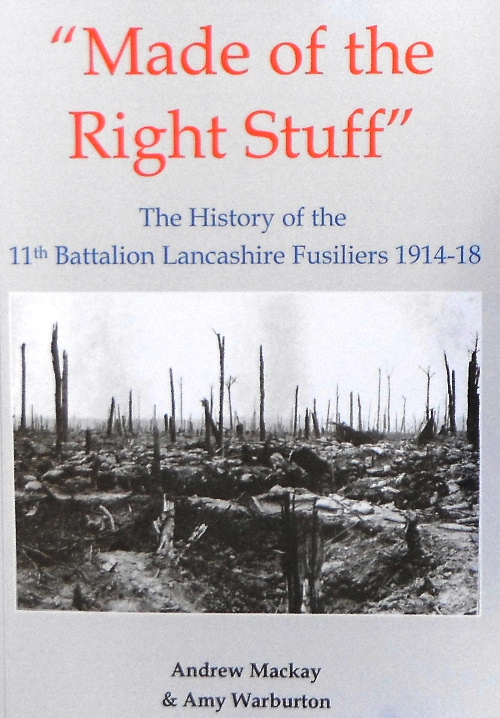
The Lancashire Fusiliers are a famous
infantry regiment and have a long and heroic history. The regiment was
raised in Devon in1688 under Sir Richard Peyton and was known as Peyton’s
Regiment of Foot and found themselves at the Battle of the Boyne fighting
in the Glorious Revolution under William of Orange. In 1751 the regiment
changed its name to the 20th Regiment of Foot and in1759 earned its
first battle honour at the Battle of Minden, standing up to the French
Cavalry and breaking their charge. The 20th Regiment guarded Napoleon
on the Island of St Helena and fought in the Crimea at the Alma and
Inkermann. In 1881their named changed again and they became the Lancashire
Fusiliers. The newly named Lancashire Fusiliers again found themselves
at the forefront of a vicious conflict, this time they were in South
Africa fighting in the Second Boer War, seeing action at the Battle
of Spion Kop and the Relief of Ladysmith.
However, it is more than fair to argue that when the subject of the
Lancashire Fusiliers and the First World War is brought up the first
thought is of their action in Gallipoli. On 25th April, 1915 the 1st
Battalion Lancashire Fusiliers stormed “W” beach and it
was here that some of the most gallant and brave fighting was fought;
earning the battalion six Victoria crosses. There is no doubt that the
actions of the 1st Battalion in Gallipoli steal the limelight in terms
of historical and military interest, however we must not forget the
other battalions of the Lancashire Fusiliers and more importantly we
must remember those men who gave everything fighting for their country.
It is for this reason that Andrew’s book on the 11th Battalion,
the Lancashire Fusiliers is so significant. While the 1st Battalion
was giving it what for on “W” beach in 1915, the 11th Battalion
were in the final stages of their training, preparing themselves to
meet the enemy on the Western Front. These men had volunteered to fight
in 1914 and had no concept of what was awaiting them and it is every
credit to Andrew who highlights the trials and endeavours of ordinary
men making the reader fully aware that perhaps most men who served in
the First World War deserved a Victoria Cross.
Amy Warburton
(Lancashire Fusiliers Museum)